The Ultimate Guide to Visiting Big Bend National Park
We may not be native Texans, but we sure got to Texas as quick as we could! Before we moved to Texas in 2015 I had never heard of Big Bend National Park. It’s one of those parks that’s so underrated and isn’t on most travelers radar, partially due to its obscure location. We jumped at the chance to visit when the opportunity arose in 2018. We thought we loved Texas already, but fell even deeper in awe of the Lone Star State during this trip and again on our most recent visit this year.
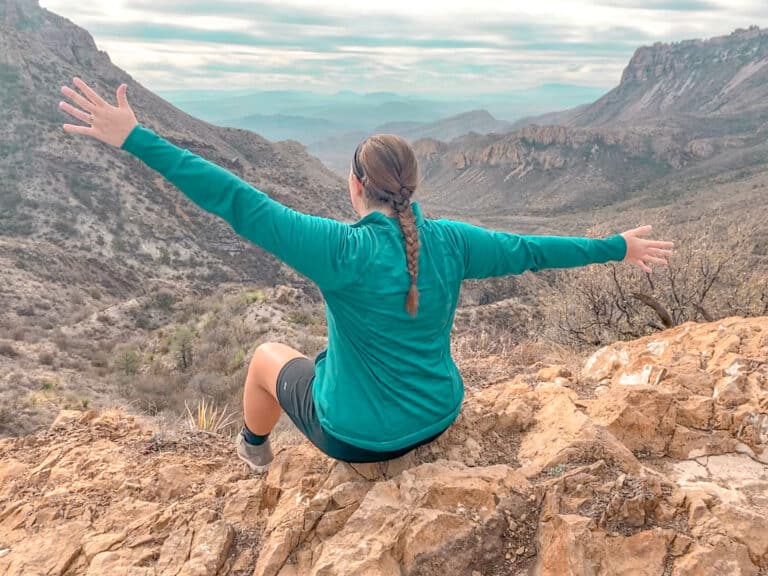
While popular national parks like Yellowstone, the Grand Canyon, ant the Smoky Mountains stand out in most people’s minds, a trip to Big Bend will be one you won’t soon forget. Big Bend might be a lesser-known national park, but it’s equally worth your time to make the trek to the park. It’s a national park I could return to again and again and have a unique experience each time. When we leave, I’ve felt myself yearning for the rugged landscape, peaceful seclusion and the vast Texas sky that never seems to end.
With a little preparation and planning in advance, you too can be enjoying the flowing Rio Grande, vast desert landscapes, scenic overlooks from atop mountains, and the darkest night sky you’ve ever seen!
Table of Contents
Best time to visit Big Bend National Park
Spring and fall are the best times of year to visit Big Bend National Park. Spring is peak season with its warm, pleasant weather. To miss the spring break crowd you’ll want to avoid visiting mid-March.
Fall is another great time to visit the park as the weather is pretty mild and usually sunny (although there are times of cold, cloudy weather as well).
Many families like to visit during school breaks/holidays so if you plan to come around these times you’ll want to book your reservations in advance. Winter can be a good time to visit as well, but you will need to be more prepared for a variety of weather.
Summer can be a more challenging time to visit Big Bend. It’s hot! And the temperature in the desert often reaches above 100 degrees while the temps in the mountains are about 10-20 degrees cooler. June – August are the hottest months and you may want to avoid doing lots of desert hiking during this season.
Overheating and dehydration is an issue especially this time of year. If you plan to visit in the summer make sure to bring more than enough water for each person! Big Bend does have a rainy season, May-September, which can cause some flash flooding.
No matter what time of year you plan to visit, you’ll want to make sure you’re prepared for the various weather you may experience. You can always check the park website for current conditions (including river levels too!).
How to get to Big Bend National Park
Big Bend isn’t the easiest national park to get to because of its remote location (which is part of what makes the park so amazing!). Whether you fly or plan to road trip, there will be a decent amount of driving either way.
Despite having a long distance to drive, getting to the national park is pretty straight forward since there are only a few highways you can take.
- TX 118 from Alpine to Study Butte.
- FM 170 from Presidio to Study Butte (then go east 26 miles to the park headquarters).
- US 90 or US 385 to Marathon (then head 70 miles south to the park headquarters).
Keep in mind that the distances between towns and services are quite far apart.
Distance to Big Bend from cities in Texas
- Amarillo to Big Bend National Park – 485 miles
- Austin to Big Bend National Park – 475 miles
- Dallas to Big Bend National Park- 570 miles
- El Paso to Big Bend National Park- 335 miles
- Houston to Big Bend National Park – 600 miles
- San Antonio to Big Bend National Park- 410 miles
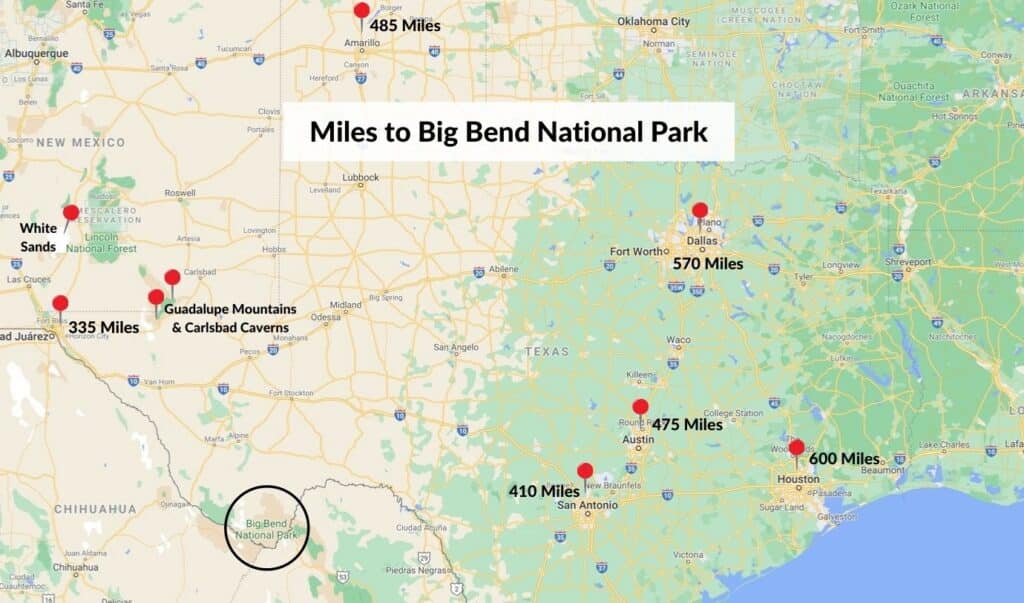
Stock up on supplies
You’ll want to make sure you’re stocked up on groceries before you get to Big Bend. Shopping options are very limited in Terlingua (the closest town to the park). There is the Cottonwood General Store in town but even that has a limited selection. The last major shopping areas are in Alpine, Fort Stockton, and Del Rio so make sure you have everything you need! There are a few camp stores in the national park if you do need something, but supplies and selection are limited.
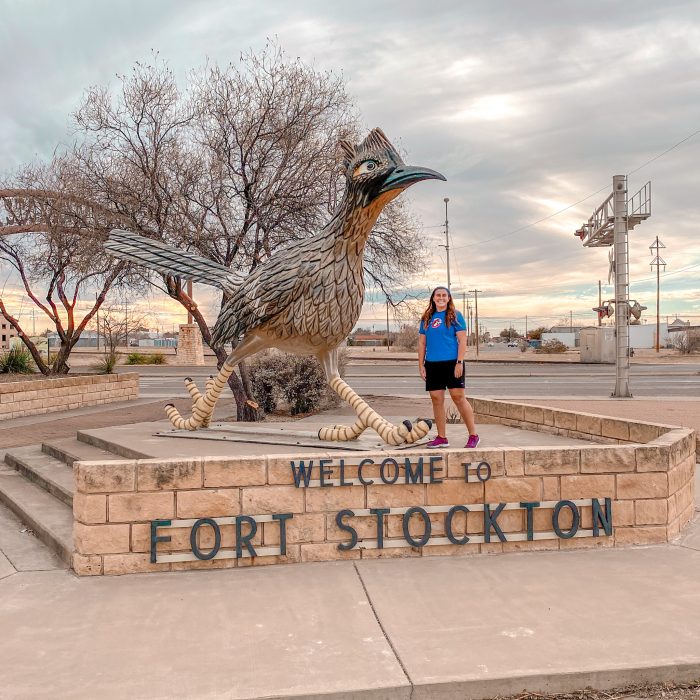
Gas Stations Near Big Bend National Park
There are very few places to fuel up on gas near the park. There is one gas station in Terlingua right outside the entrance to the national park and a gas station at the general store in Lajitas (between the state park and national park). Inside the park there is one gas station available at Panther Junction. You’ll want to keep a close eye on your fuel tank. The park is large and with the limited and spotty cell reception you don’t want to get stranded.
Big Bend National Park Closest Airport
There are two options if you wish to fly to Big Bend National Park instead of drive. The closest airport will be in Midland, Texas but it is a relatively small airport. You’d still need to rent a vehicle to get around in and drive the 245 miles from the airport to the national park.
The second closest airport to Big Bend National Park is the El Paso International Airport. Again, even if you fly, a rental car would be necessary to reach the national park and to get around while you’re visiting. The distance from this airport to Big Bend is about 335 miles.
Where to stay at Big Bend National Park
If you’re looking to fully immerse yourself in Big Bend, staying inside the national park is the best option! There are four developed campgrounds in Big Bend National Park as well as many backcountry campsites. Aside from camping, the only lodging option inside the park is the Chisos Mountains Lodge. Reservations are required and you may need to book a room quite a bit in advance for the peak season.
A few perks of staying in the park include: less driving required, easy access to trails, small and quiet campgrounds. There are a few roads and campgrounds that are not suited for RV’s and trailers over a certain length so make sure you check before you book.
List of places to stay in big bend national park
- Chisos Basin Campground
- Rio Grande Village Campground
- Rio Grande Village RV Park
- Cottonwood Campground
- Chisos Mountain Lodge
For a more in-depth look at what each of these has to offer take a look at my guide The Best Places to Camp Near Big Bend.
Places to stay near Big Bend National Park
If you’re unable to snag a spot inside Big Bend, don’t worry! There are still some amazing accommodations in the nearby towns of Terlingua and Lajitas. You’ll just want to keep in mind you may do a bit more driving this way. It’s about a 45 minute drive from Terlingua to the Chisos Basin, which is centrally located in the park.
Unique vacation rentals like tipis, yurts, retro trailers, and wooden a-frame stargazers are just some of the accommodations you can find in town. In addition to these vacation rentals, there are several RV parks in the area as well as a golf resort. To get all the details on these places to stay, check out this post: The Best Places to Camp Near Big Bend.
Important Big Bend park information
Big Bend National Park Entrance Fee and Passes
- Vehicle – $30
- Motorcycle – $15
- Big Bend Annual Pass – $55
- America The Beautiful (National Park Pass) is accepted – $80 / year and access to over 2,000 federal recreation sites. You can purchase these online or at a national park. If you have a 4th grader, make sure to get your free pass for the year for you and your family to get outdoors.
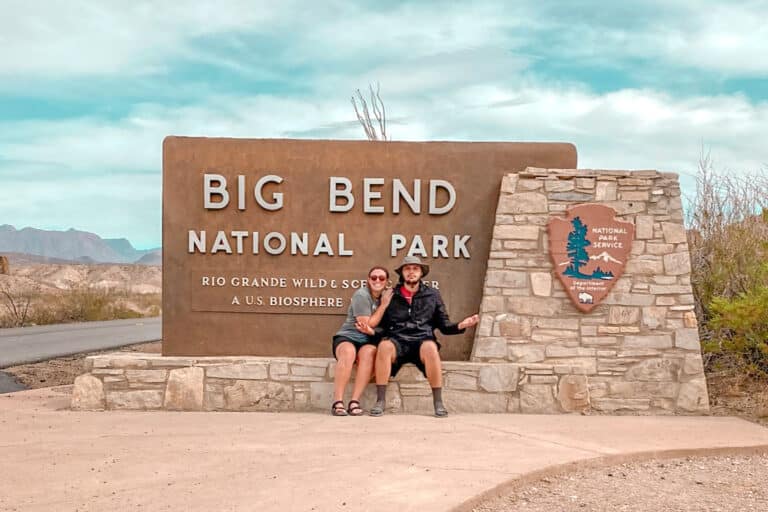
Big Bend National Park Hours
Park entrances are open 24 hours, year round. Visitor center operating hours vary by season. It’s always best to check the national park website before you visit! A few things have been closed for the past year because of covid (hot springs & Boquillas Crossing Port of Entry) and other closures and warnings are listed on the home page of the park’s website.
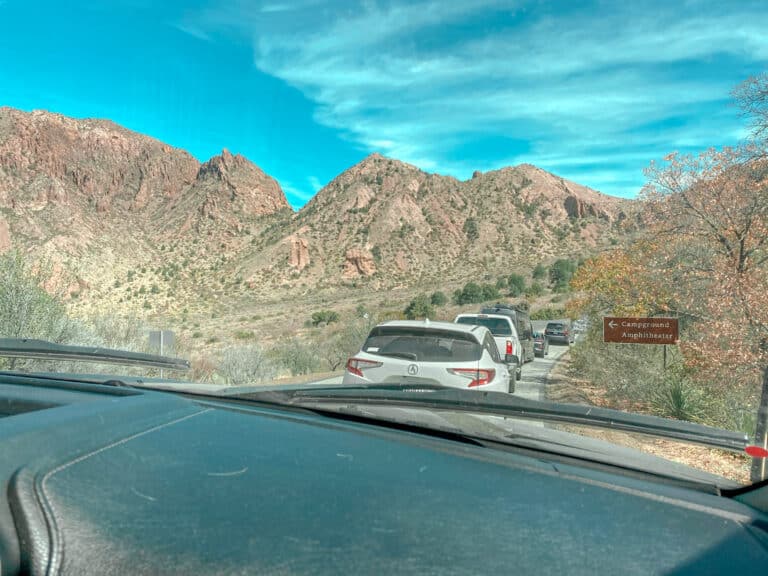
Big Bend National Park Dogs
While pets are allowed in the park, they’re only able to go where your vehicle can go. They’re not allowed on trails, off road, or in the river. This can really limit what you can do in the park if you do plan to bring a pet along. Please never leave your pet in a vehicle unattended.
The only pets that should EVER be out on the trails in Big Bend are QUALIFIED service animals helping people with disabilities.
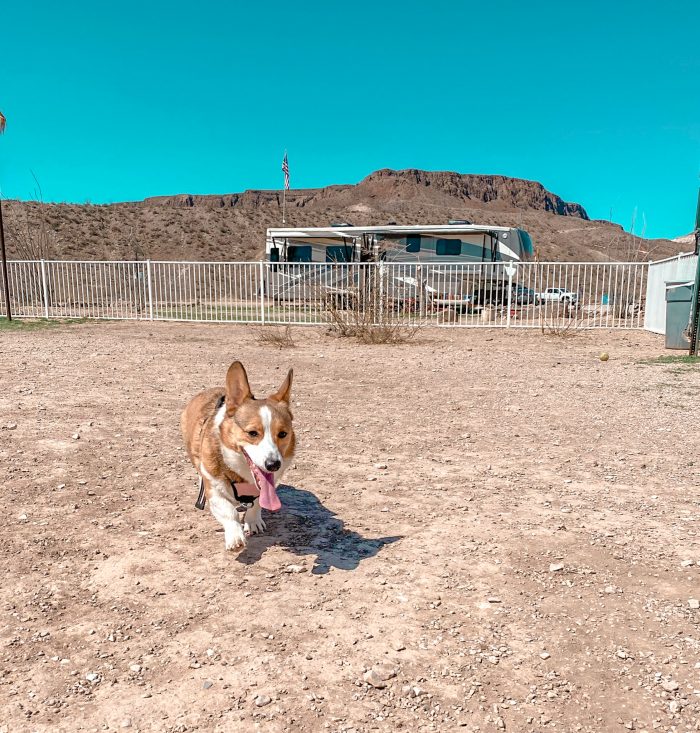
Many people visit Big Bend National Park to enjoy the wildlife. Bringing your pet along could disrupt the natural behavior of wildlife. Please, don’t be that person who ruins things for other visitors!! We love taking our dogs along with us on hikes, so if you are looking for a pet friendly hike near Big Bend, check out Closed Canyon trail and the Hoodoos trail in nearby Big Bend Ranch State Park.
Checkpoints and Border Crossings Big Bend National Park
The Rio Grande flowing through the park forms the shared border between the United States and Mexico. On your drive to Big Bend you’ll notice a Border Checkpoint because of its proximity to Mexico. Typically they’ve just waved us through but they may ask to see your driver’s license or visa/green card. It’s important to have these documents on you and ready.
Although we felt safe on both of our visits to the park, illegal border crossings and drug smuggling does occasionally occur in Big Bend National Park. Be aware of your surroundings and if you see something that does look illegal, suspicious, or out of place, it’s best not to intervene but make note of the location, direction of travel and time and report to authorities when possible.
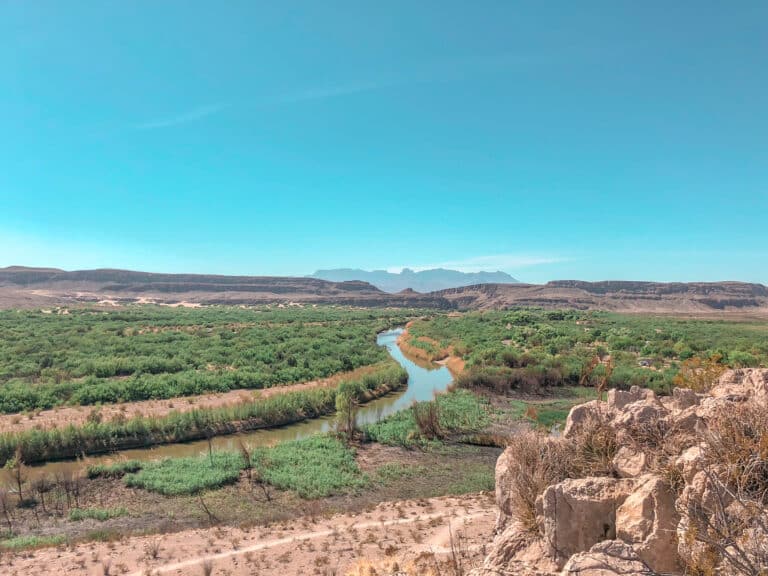
Boquillas Crossing Port of Entry is great for visitors wanting to take the opportunity to visit Mexico. To visit the small town of Boquillas you will need the proper documentation. The crossing is only open during certain days and times depending on the season. Unfortunately, when we visited in February 2021, the border was still shut down because of COVID. Our first trip in 2018 neither of us had our passport so, visiting Boquillas is still on our Big Bend Bucketlist!
Cell Service
Cell service can is spotty to non existent in most areas of the park. You’ll have the best luck at the Chisos Basin and Panther Junction. We were also able to get some signal outside of the laundry facilities in the Rio Grande Village.
If you’re planning to work while you’re visiting, I would not recommend staying inside the national park. You’ll get better signal in Terlingua or Lajitas.
How many days in Big Bend National Park
I’d suggest a minimum of 3 days to visit Big Bend. 5-7 days would be even more ideal as you’d have plenty of time to explore each section of the park.
Best Things to Do at Big Bend National Park
Ross Maxwell Scenic Drive
This 30 mile long scenic drive winds its way through Big Bend while showing off some of the features and historical sites the area is known for. Along the way there are many opportunities to pull over at ranches, scenic overlooks, and even trailheads to begin a hike. It’s the type of drive you’ll be tempted to pull over every mile and snap a photo of the endless stunning landscapes that surround you.
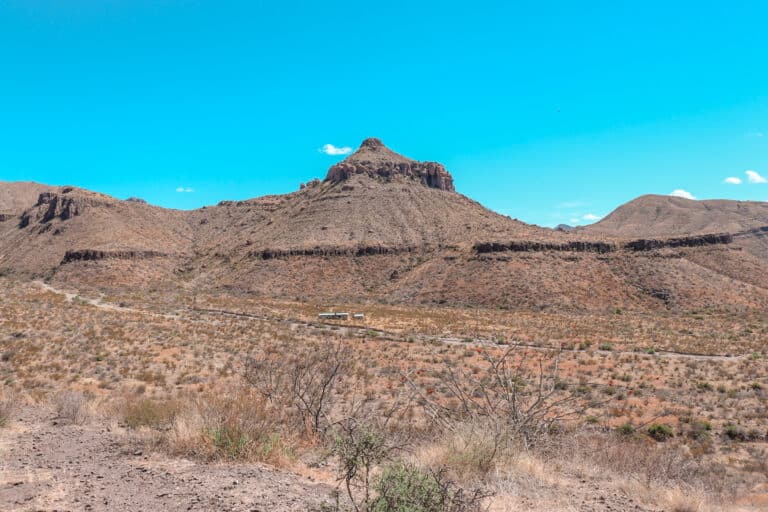
The Ross Maxwell drive is great especially if you’re short on time as it will give you a glimpse into all that the park has to offer. Eventually, the drive will lead you through the Castolon Historic District and end at the jaw dropping Santa Elena Canyon.
Big Bend National Park Hiking
There are so many good hikes in Big Bend National Park! Deserts, rivers, canyons, and mountains – you name it! I previously wrote in depth guides to each of the hikes we did which you can find down below.
- Lost Mine – This is a moderately rated 4.8 mile roundtrip trail in the Chisos Mountains with stunning views throughout.
- South Rim – A longer day hike or overnight backpacking excursion through the Chisos Mountains. I would rate this as a moderate – difficult hike because of the distance and elevation gain. We put in about 13 miles but it can be more depending on your route. These were our favorite views in the entire park and the hike to get there was well worth it.
- Grapevine Hills (Balanced Rock) – This hike through the desert is a mostly flat 2.2 mile roundtrip trail and is a good family friendly one.
- Santa Elena Canyon – Even if you don’t do the 1.7 mile roundtrip trail, it’s worth the drive just to see this iconic natural feature up close and dip your feet in the Rio Grande.
- The Chimneys – Another great desert hike! This one is a bit longer than Grapevine Hills clocking in at 4.8 miles roundtrip. The hike leads you to the “chimneys” which are a series of volcanic outcroppings. Keep an eye out for some petroglyphs at the base of the chimneys!
- Mesa de Anguila – A little more off the beaten path, the hike up to the saddle of Mesa de Anguila is secluded and quiet. At the top you’ll see the beautiful Rio Grande and as you’re hiking back down you’ll see stunning views of Lajitas in the distance.
Rafting in Big Bend National Park
A river tour in Big Bend is a great way to see parts of the park that aren’t easily accessed by foot. Many of the rafting trips offered are through canyons so you get to go further into the canyon and have a different perspective. If you have your own kayak or canoe, you can bring it along and do your own self guided river trip. To get the full scoop on kayaking the Rio Grande in Big Bend check out my previous post about it here.
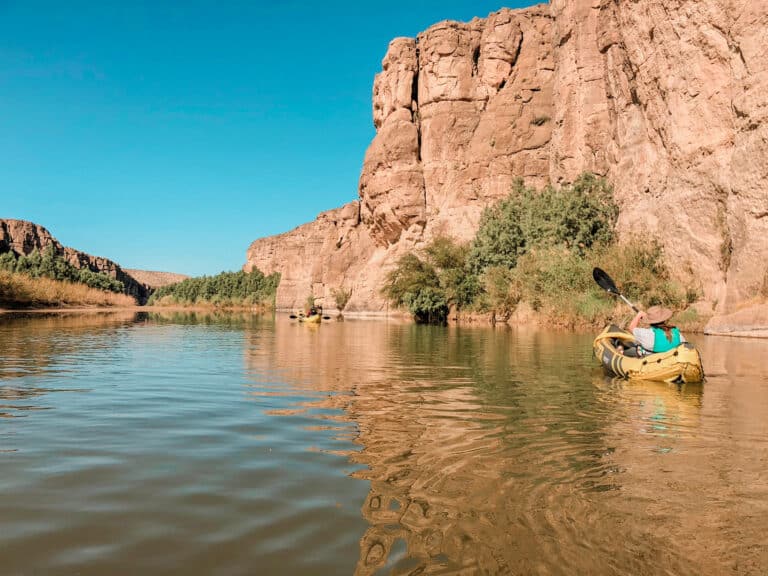
Big Bend National Park Stargazing
Did you know that Big Bend is an incredible place to see the night sky?? The stars at night are DEFINITELY big and bright deep in the heart of Texas. In 2012, Big Bend National Park was awarded International Dark Sky Park status.
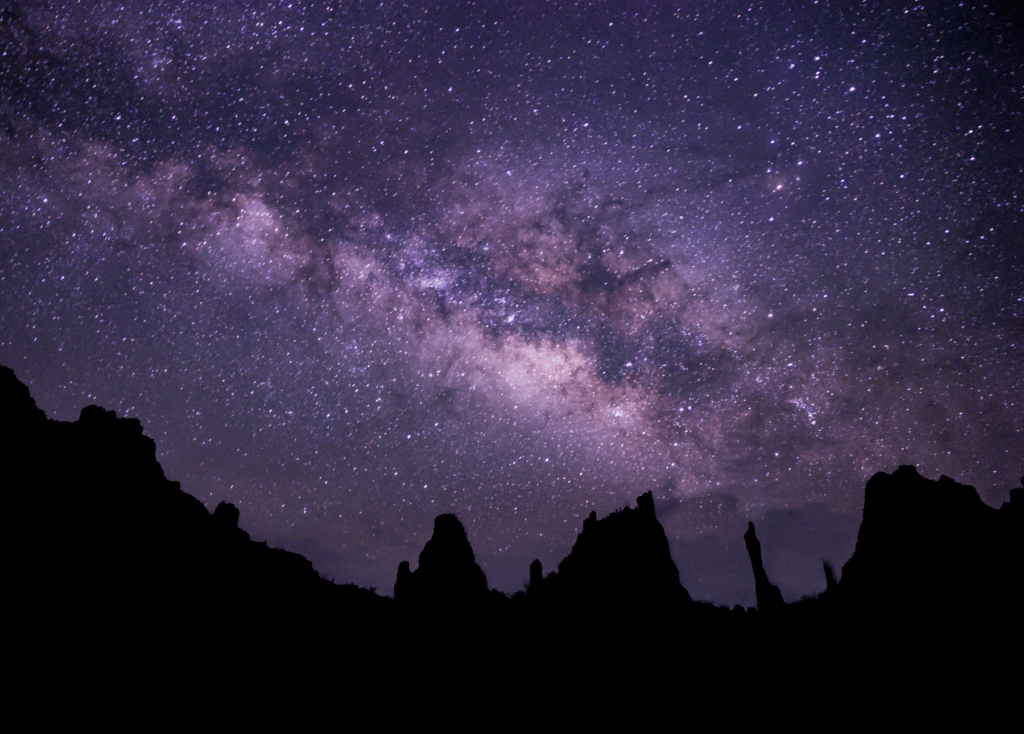
Because of it’s remote location and great distance from major urban areas, the skies over Big Bend are some of the darkest in North America. The lack of light pollution was so surprising to me – definitely one of the darkest skies I’ve ever seen. Grab a blanket and binoculars and go get your stargazing on!
Fossil Discovery Exhibit
One of the things that stuck out to me most was how much the scenery made me feel as if I was on another planet. At times, I even felt as if I was on set of Jurassic Park (especially in certain areas like Grapevine Hills trail and Santa Elena Canyon). I didn’t even realize until after our trip that Big Bend is considered “one of the true jewels for paleontological research in the world.” Over 90 dinosaur species have been found in the park along with other fossils of plants, fish and early mammals.
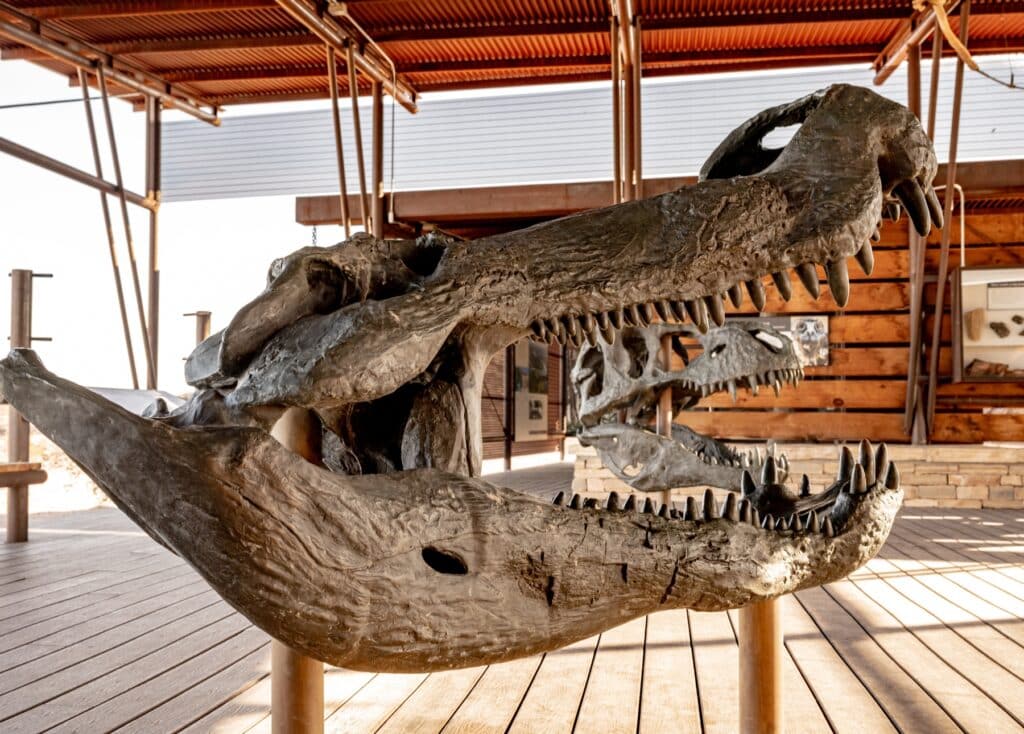
Construction began on the The Fossil Discovery Exhibit in 2016 and today it gives visitors a complete look at what a prehistoric ecosystem might have looked like. We didn’t get a chance to visit but I’m definitely adding this to my list to stop at for next time. You can find the exhibit just 8 miles north of the Panther Junction Visitor Center.
Visit Boquillas del Carmen Mexico
Don’t forget your passport! Big Bend shares 118 miles of the Rio Grande with Mexico. How often can you visit a national park and cross over into another country?! For an unique national park experience, consider crossing the border and visiting Boquillas.
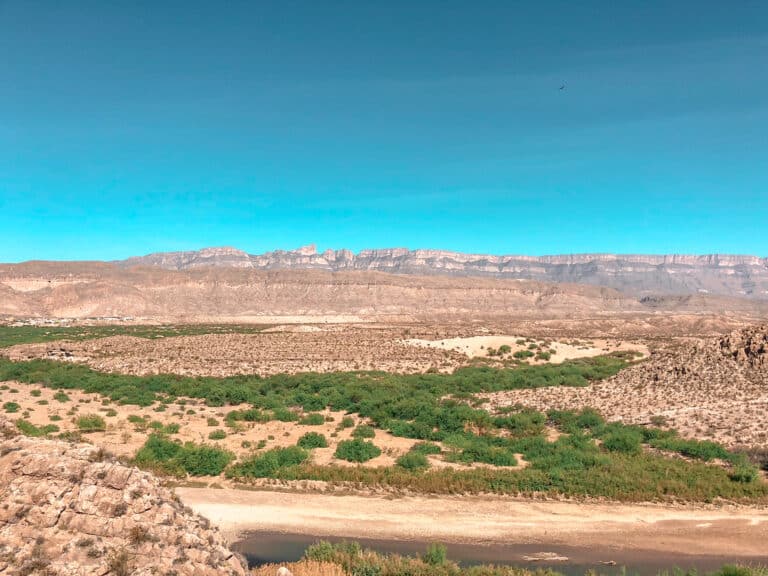
After crossing the port of entry, visitors can take a small rowboat ($5 roundtrip) across the river and into Mexico. Once, across the river you can choose to either walk a mile into town or pay to ride a donkey. You can take a stroll around town, do some shopping and eat at one of the two restaurants. Don’t forget to bring cash!
I’m really disappointed the border was still closed when we visited this spring. This would be such a unique thing to do in a national park. Definitely on my Big Bend bucket list!
Big Bend Hot Springs
After a long day of hiking there’s nothing quite like taking a dip in a hot spring to soothe your aching feet and muscles. The Big Bend hot springs is located right on the edge of the Rio Grande and is just a short .25 mile walk from the trailhead. As you arrive you’ll see the spring contained by the foundation remains of a once impressive bath house. We visited the day after our long hike to the South Rim through the Chisos. The 105 degree water was so therapeutic after a 12+ mile hike.
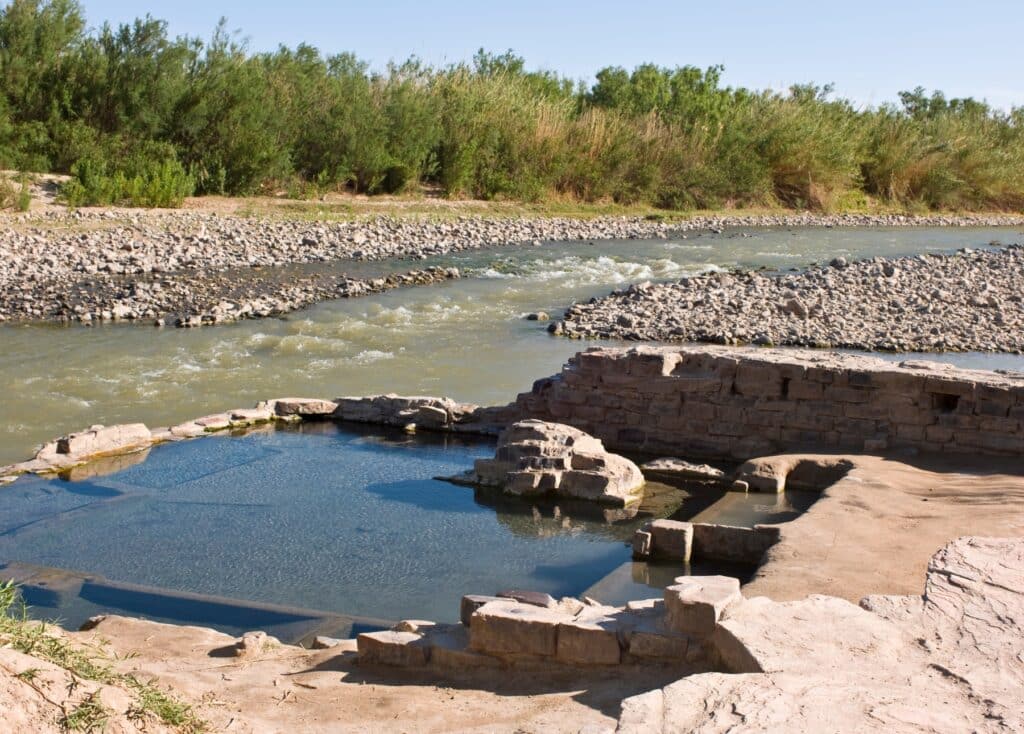
Visit Big Bend Ranch State Park
Located north west of Big Bend National Park, Big Bend Ranch is the place to be if you’re looking for even more opportunities for solitude. With fewer crowds, and a more rugged landscape the state park maybe even better than the national park! The drive through the park alone is worth the trip.
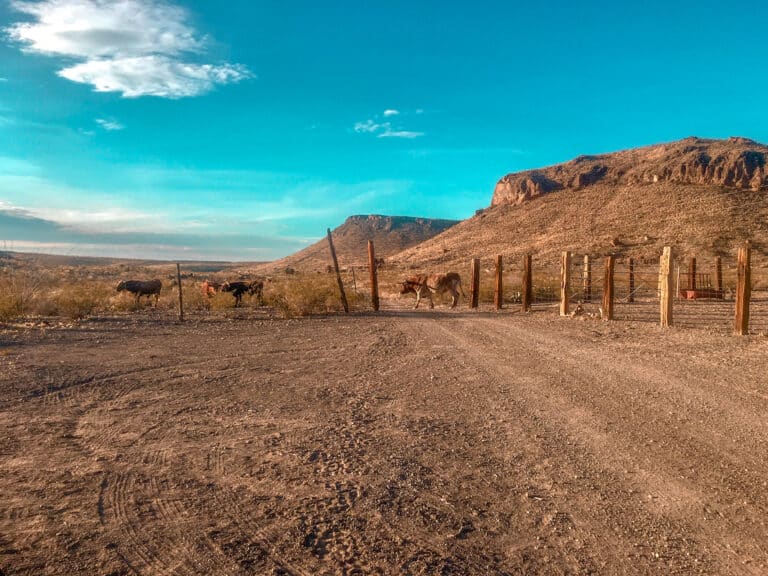
We had the opportunity to tent camp here our first time out and it was probably the most peaceful place I’ve ever camped. There are a plethora of trails and even two dog friendly ones which I highly recommend (Closed Canyon & Hoodoos). If you have the time to check out the state park I highly recommend it!
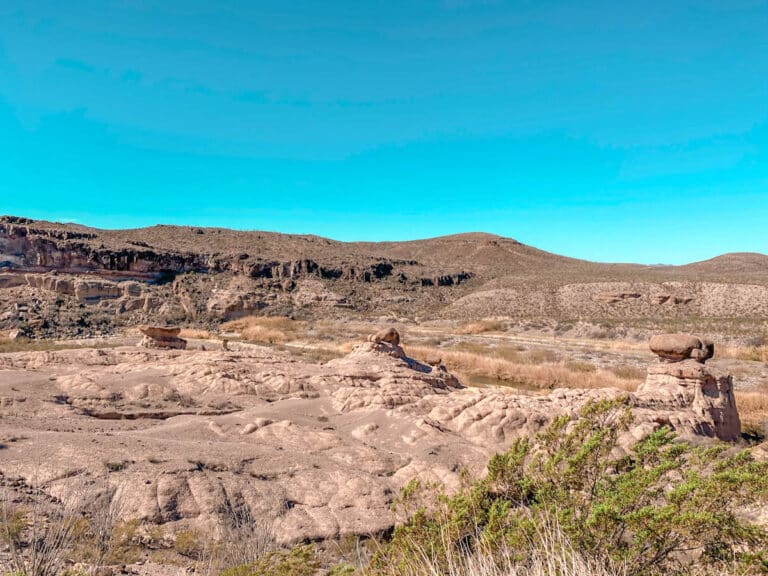
Other National Parks near Big Bend
If you’re planning a road trip out to Big Bend, you may want to consider stopping at some of the other national parks in the area while you’re at it.
Distance from Big Bend:
- Guadalupe Mountains National Park – 270 miles
- Carlsbad Caverns – 305 miles
- White Sands National Park – 420 miles
From Big Bend we traveled to Van Horn, Texas and used that as a base to make trips to Guadalupe Mountains and Carlsbad Caverns. It’s about an hour drive from Van Horn to Guadalupe Mountains and about and hour and a half to Carlsbad.
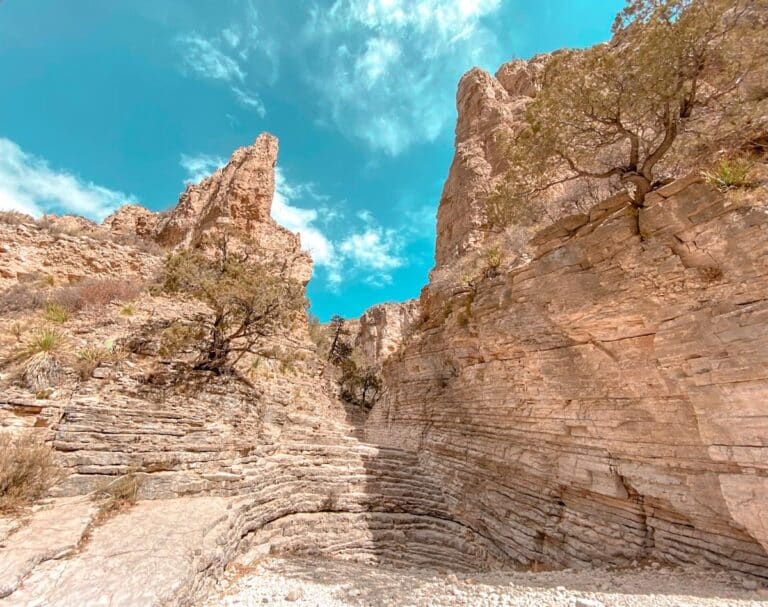
After staying a couple weeks in Van Horn, we made a stop in El Paso and then headed to our next national park – White Sands. We had so much fun visiting each of these national parks and it could be easily made into a small national park road trip similar to what we did.
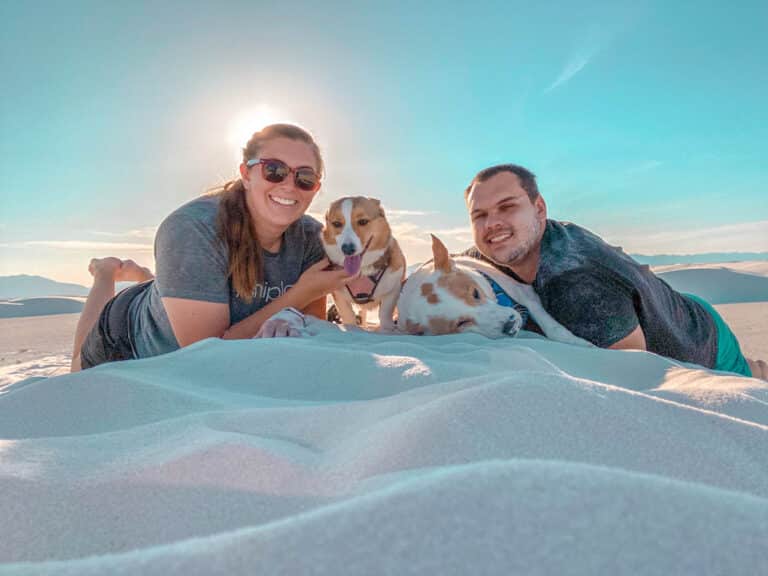
Is Big Bend National Park worth visiting?
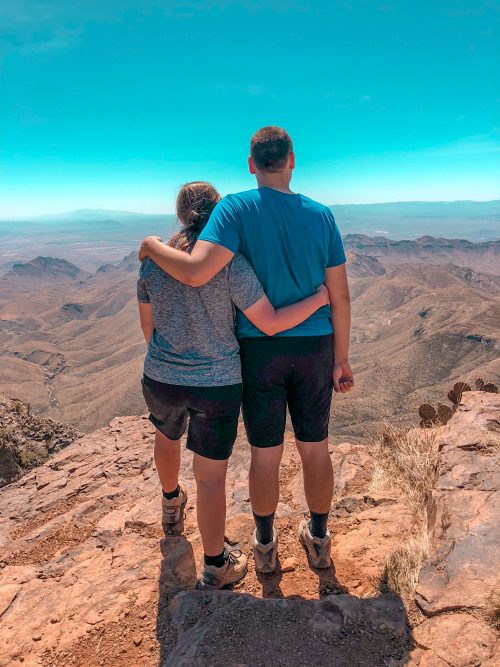
As you may have guessed at this point, Big Bend National Park holds a special place in my heart. To date it is my favorite place we have ever taken our RV! I sincerely hope you get the chance to visit this awe-inspiring, jaw dropping park one day. Any words I use to attempt to describe the rugged beauty that is Big Bend never seem to do it justice. It’s truly a destination that must be seen to be believed.
More Information About Big Bend National Park
Want more information about Big Bend National Park? Check out some of our other posts below!
- The Best Places to Camp Near Big Bend National Park
- Big Bend National Park River Trip
- Lost Mine Trail
- South Rim Trail
- Grapevine Hills Trail – Balanced Rock
- Santa Elena Canyon Trail
- Chimneys Trail
- Mesa de Anguila Trail
Until next time, happy adventuring!

Don’t forget to save this post on Pinterest so you can refer to it when planning your trip to Big Bend!
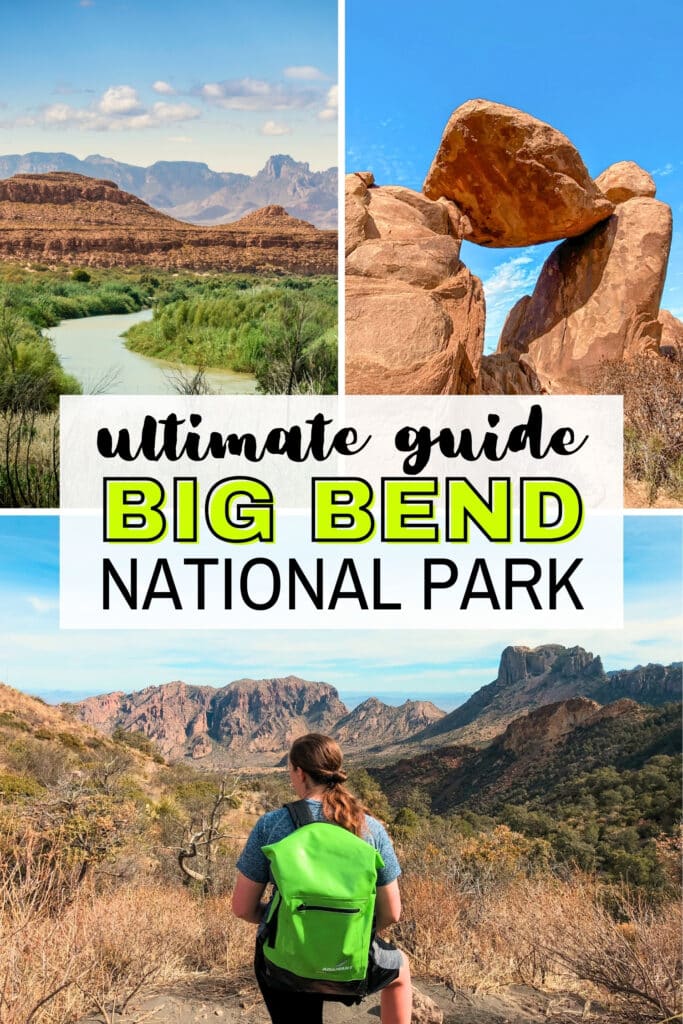
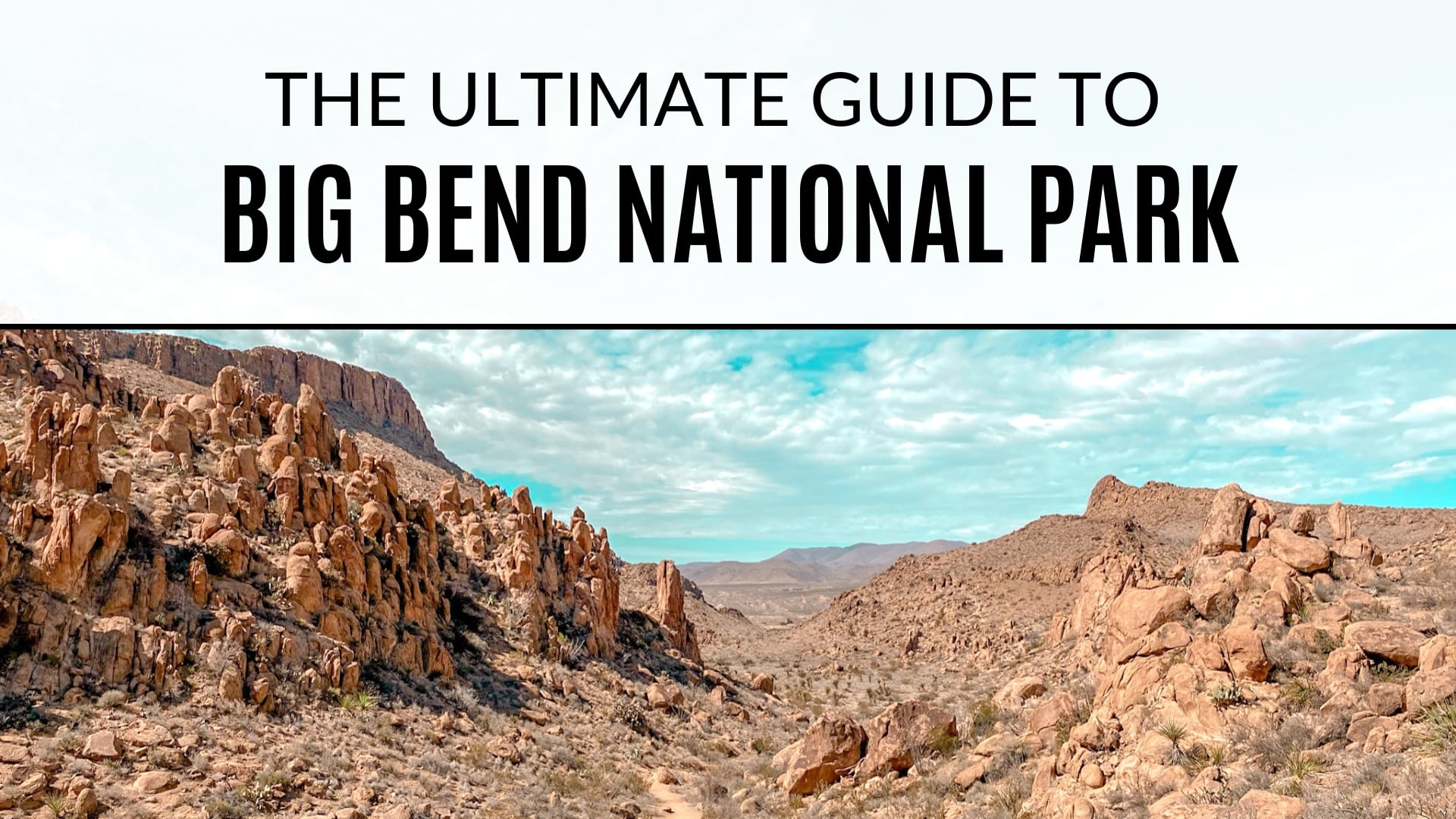
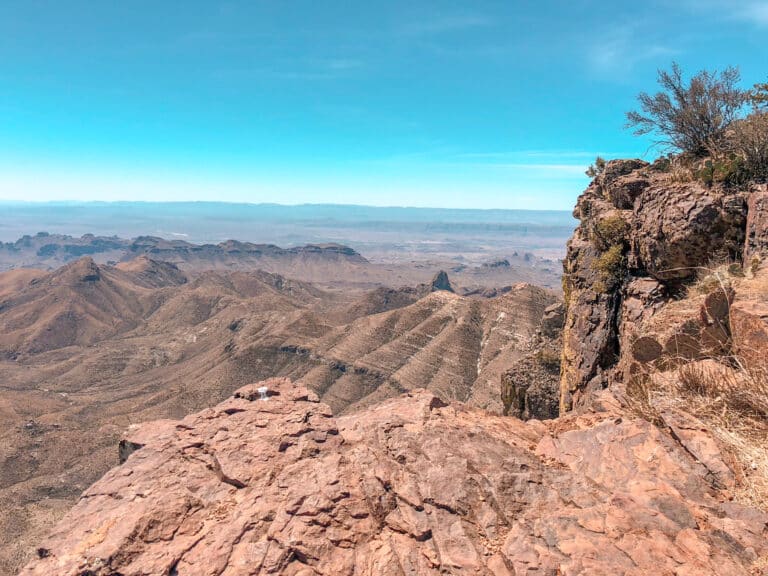
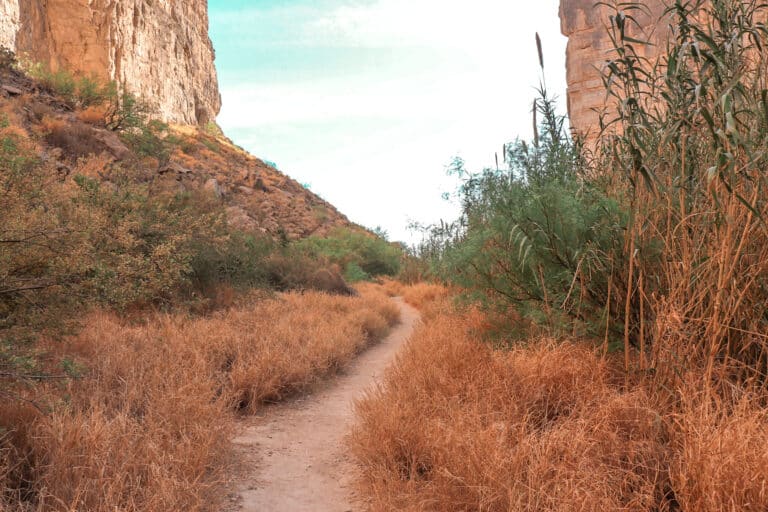
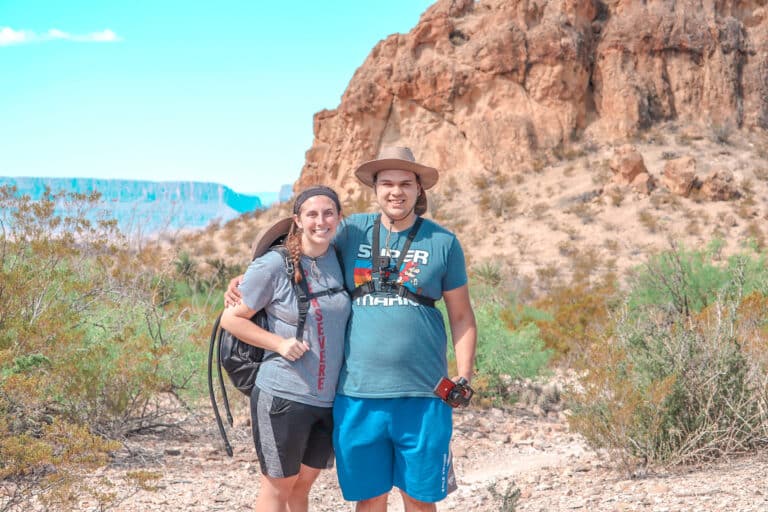
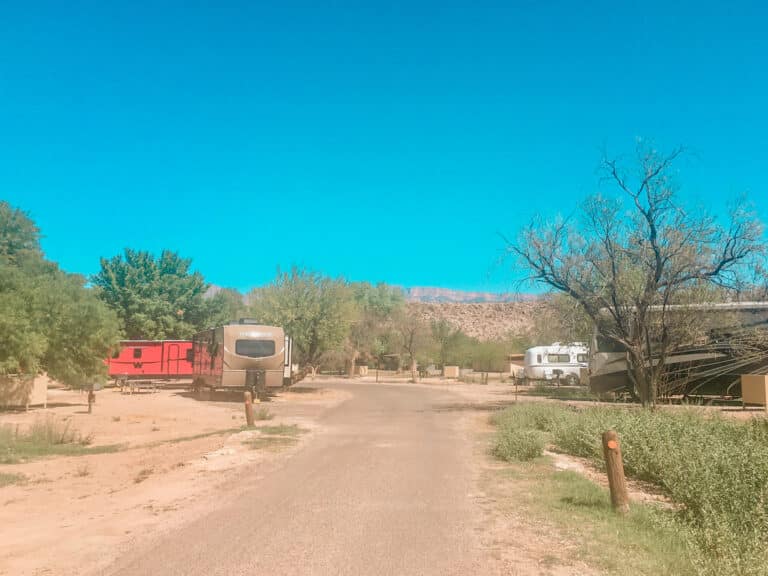
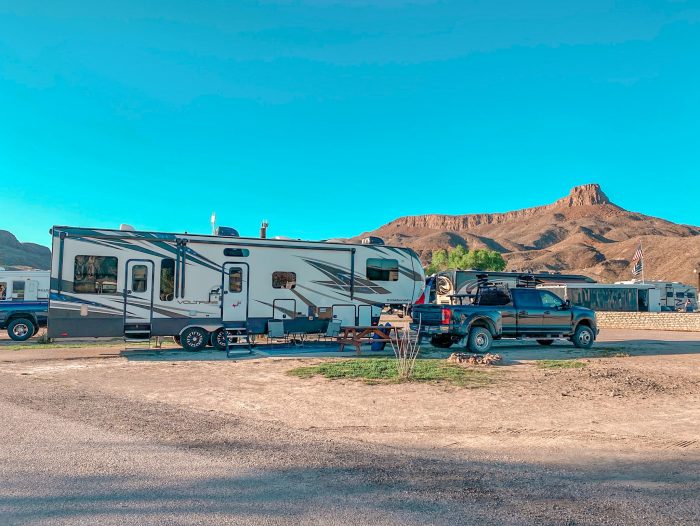
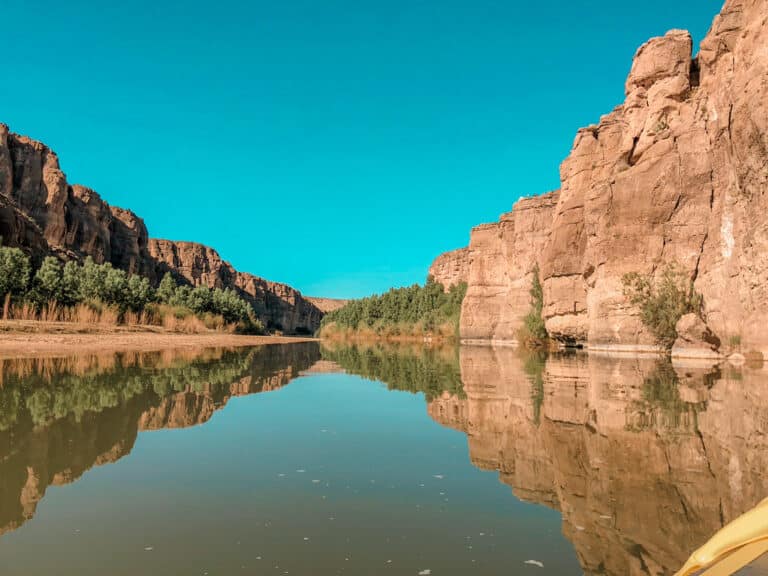
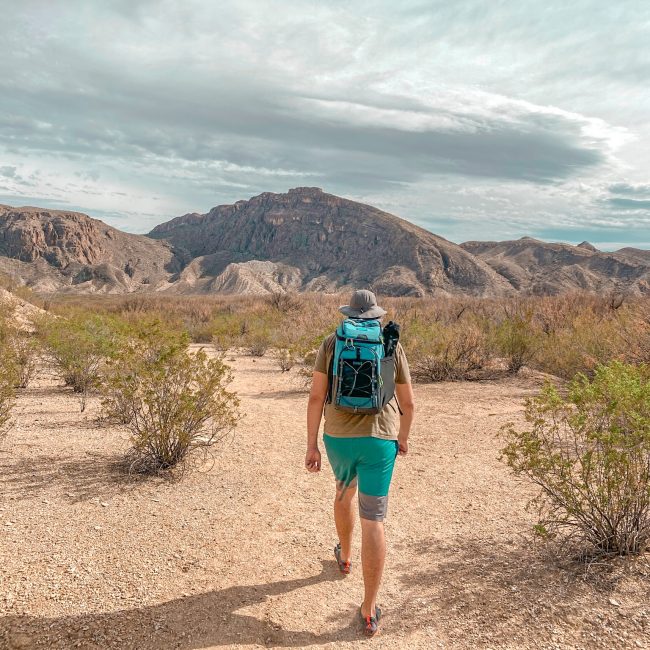
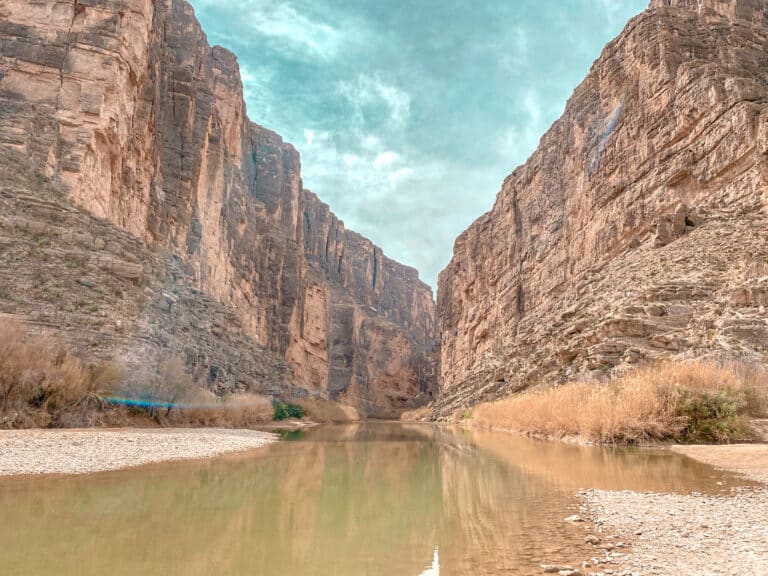
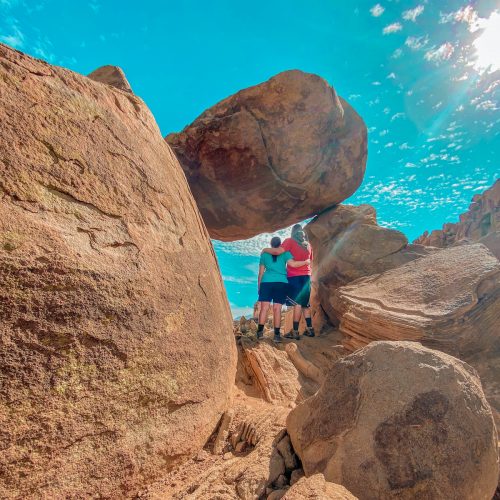
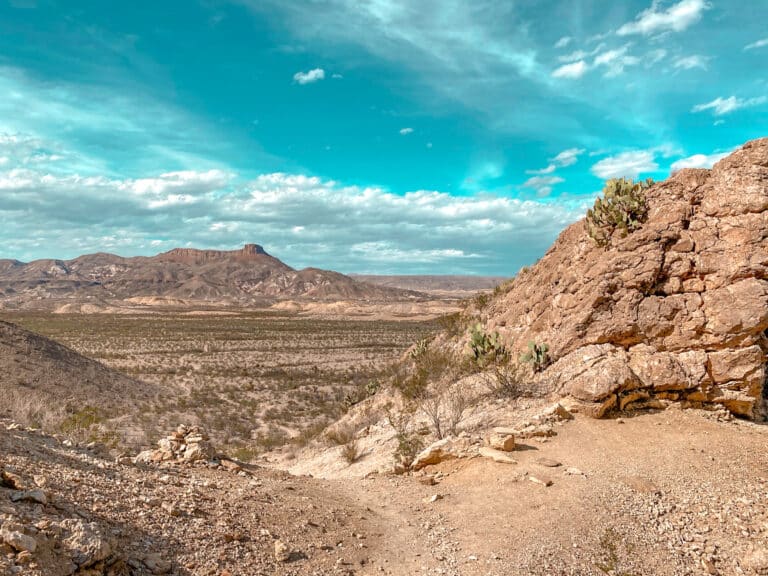
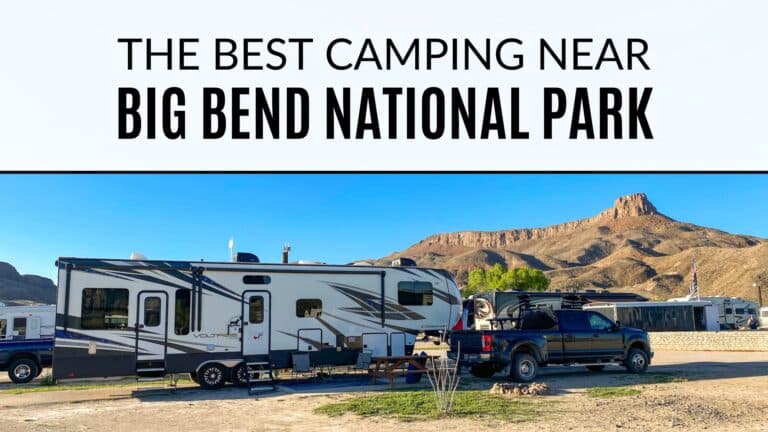
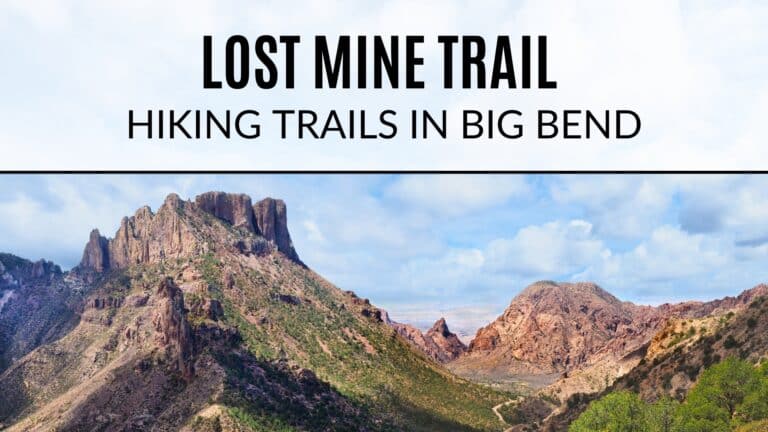
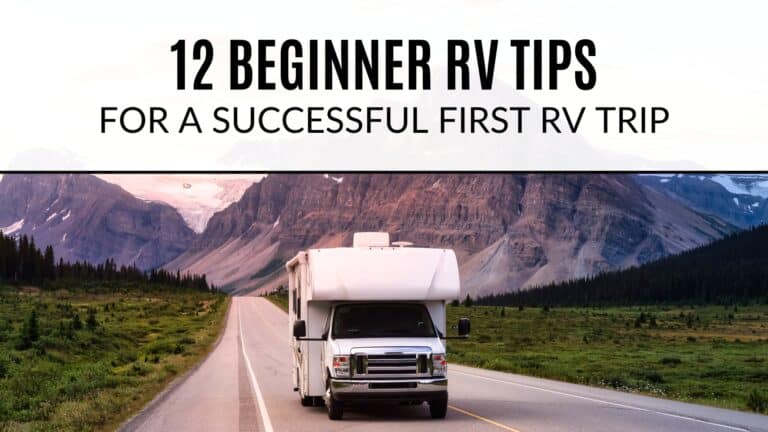
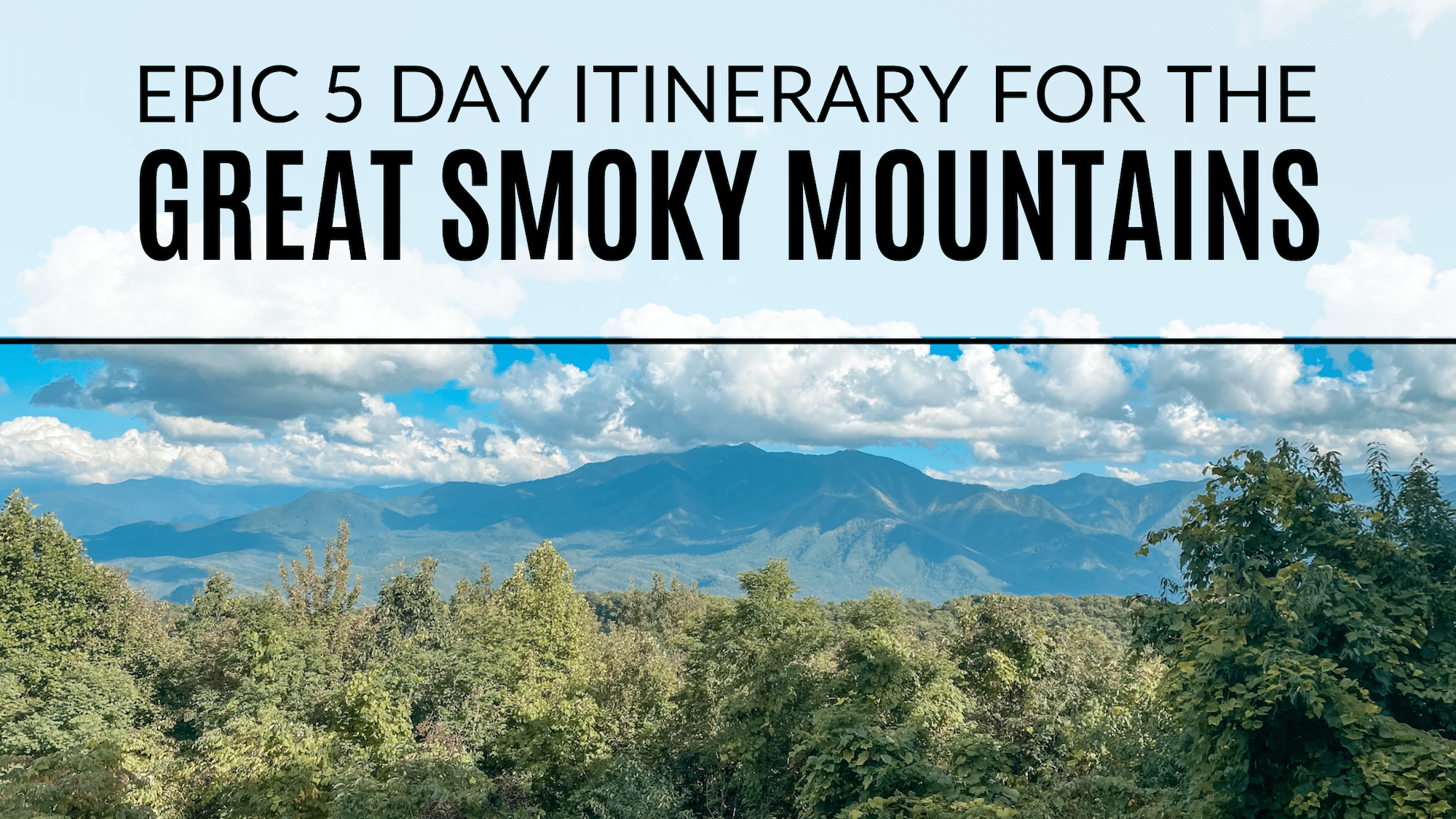
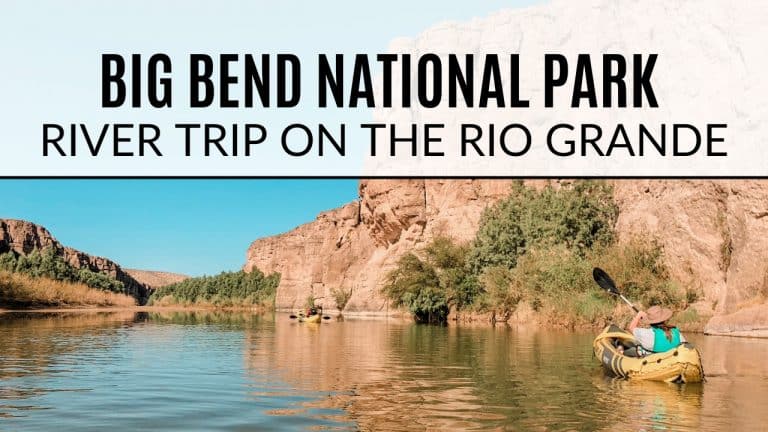
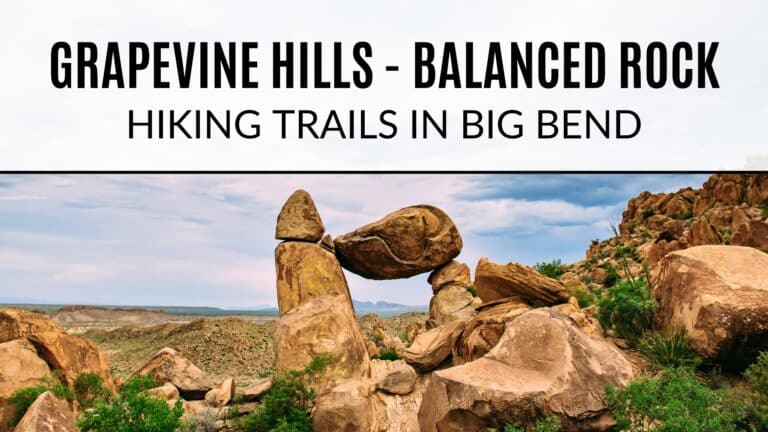
This guide is so helpful!! Big Bend is one of our favorite National Parks.
Thank you!! It is definitely my favorite of what we’ve visited so far.
Love all your helpful guides to visiting Big Bend! It will make it so much easier when we are able to visit! I especially like that you even add in important info such as cell phone signal!
Thanks Sarah! Gotta look out for all the digital nomads out there. Hopefully helps being able to decide if you can visit and work at the same time.
Big Bend is our favorite National Park!
Absolutely love your whole series on Big Bend – so much helpful information and a rare and truly complete guide to Big Bend National Park!
I love all of your posts on Big Bend!! I wish I scheduled my trip after yours because you touch on SO many great places!!🥰😍
Megan – this is such an incredible post and so detailed! Great post!